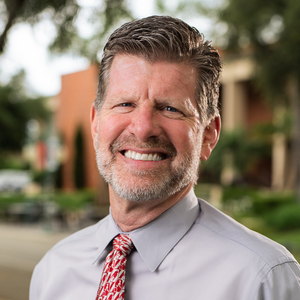
There is no end of opportunities to be blessed with the teaching and preaching of God’s word. Great preachers can be heard on the radio. Podcasts can be automatically downloaded to our phones or iPads. The teaching of God’s word is available 24 hours a day, 7 days a week, on cable television networks. Christian bookstores are full of books by the greatest authors of our day. Electronic books can be carried with us everywhere with ease. Churches have program after program geared toward teaching God’s word, not to mention a worship service every week, which includes a Bible-based sermon. From the cradle to the grave, opportunities abound.
At the same time, secularism has crept into the church. Bible illiteracy is at an all-time high. A generation of young people hold convictions passionately, yet their convictions are not based on God’s word. The sins in the church often mirror the sins of the world. People conveniently hold to certain attributes of God to the exclusion of others in order to perpetuate their worldview. We are in desperate times.
Perhaps, we are cultivating a generation which approaches the Bible with a “cut and paste” attitude. It would not be the first time. Consider Thomas Jefferson’s version of the “Bible,” which he called the “Syllabus.” In his “Bible,” he kept the words of Jesus and some of his deeds, but he left out the miracles and any suggestion that Jesus is God. The virgin birth? Gone. Jesus walking on water? Gone. Jesus multiplying the loaves and fishes? Gone. Jesus raising Lazarus from the dead? Gone. Jefferson’s version ends with Jesus’ burial on Good Friday. There is no resurrection, no Easter Sunday. It must be stated that there are many questions as to the purpose of this Bible and whether or not Jefferson was a true follower of Jesus. He never intended this version to be public. However, when Jefferson completed his edited version of the Bible, he wrote to William Short,
“among the sayings & discourses imputed to him by his biographers, I find many passages of fine imagination, correct morality, and of the most lovely benevolence: and others again of so much ignorance, so much absurdity, so much untruth; charlatanism, and imposture, as to pronounce it impossible that such contradictions should have proceeded from the same being.”
For Jefferson, it was not difficult to distinguish the “most lovely benevolence” from the “so much absurdity,” in that he concluded, “I found the work obvious and easy.”
We may find ourselves quickly denying that any such idea could be true of us. We may believe that we would never treat any part of God’s word as “ignorance,” “absurdity,” or “untruth.” Or would we? Perhaps this is a good time to ponder an important question: When we hear God’s word, do we respond or simply listen? The key to the blessed life in Psalm 1 is meditation, meditation that leads to an active lifestyle response. James 1 adds that it is of absolute importance to be a doer of God’s word, not just a hearer. Again, we may deny that we are simply hearers of God’s word. We may insist that we are doers. So a good test case becomes: After the last sermon you heard, whether a day ago or a week ago, how did you respond? Or did you simply hear? It is probably best to determine which parts of God’s word we understand to be the “so much absurdity” by looking at what parts of God’s word we do not actually live.
What is the best proof that we have a “cut and paste” Bible? The proof will not be whether or not we have taken a razor to our Bibles and cut out the parts we do not like. The proof will be whether or not we have a “cut and paste” life, where we hear all of God’s word but only respond to what we want to, to what we really believe. It becomes a “cut and paste” life. May God help us all to hear every word of the word he was so richly blessed us with, and may we live it…every detail of it for his glory and honor!
 Biola University
Biola University
.jpg)
.jpg)

